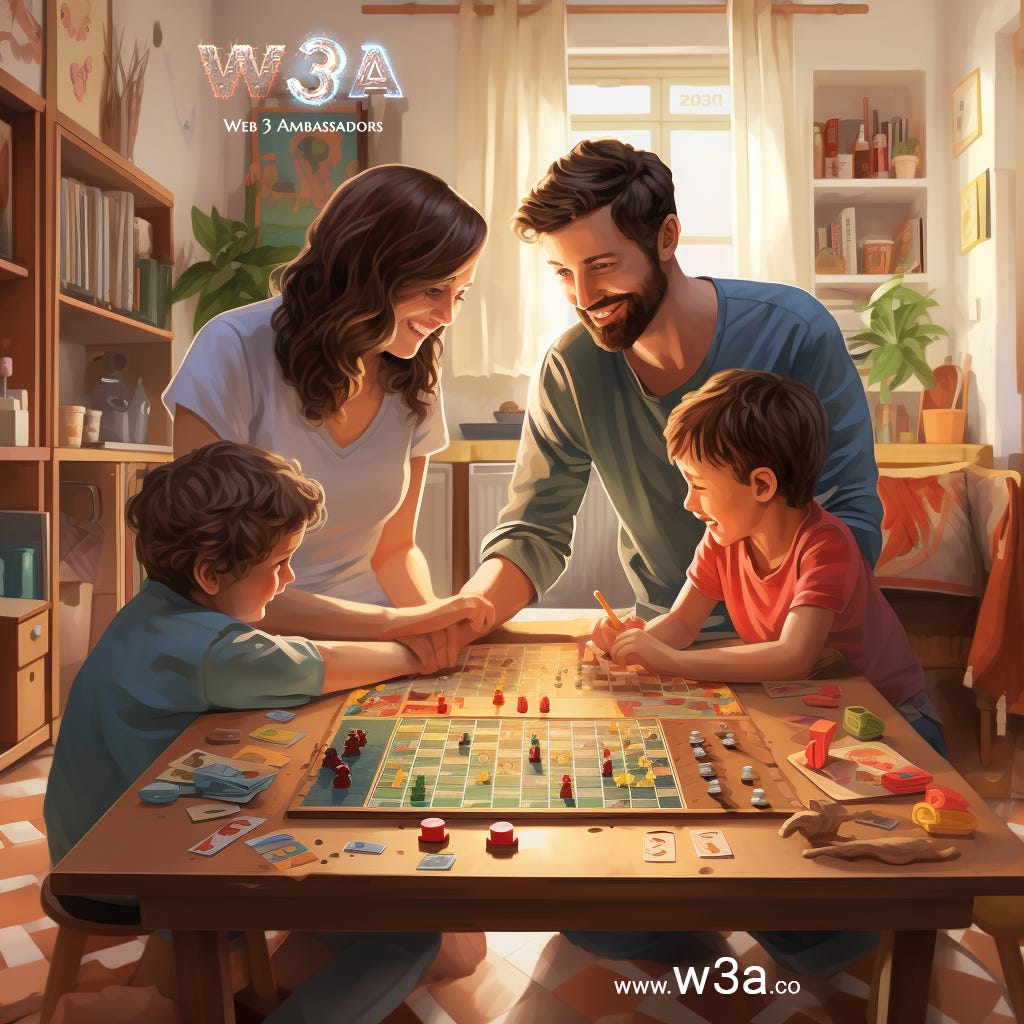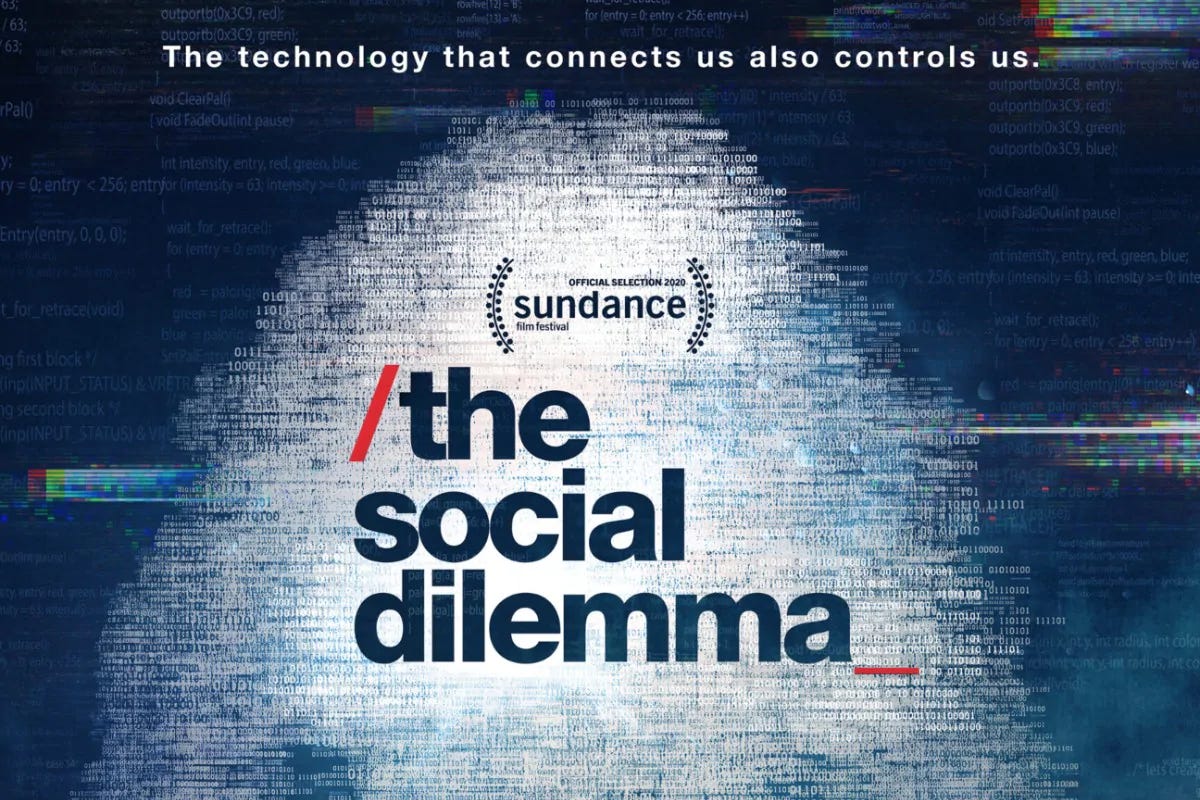Is life a game?
If so, is it a fair game for new humans?
At Web 3 Ambassadors we are talking about Web 3, but for us, Web 3 is much more than just internet technology.
To start this article we will quote the great Alan Watts from one of his seminars where he tells his students a couple of decades ago, how our modern culture is Playing the game of life:
We have an absolutely extraordinary attitude in our culture, and in various other cultures, high civilizations, to the new member of human society. Instead of saying frankly to children, "How do you do? Welcome to the human race!" we are playing a game and we are playing by the following rules: we want to tell you what the rules are so that you know your way around, and when you understood what rules we are playing by, when you get older, you may be able to invent better ones.
But instead of that, we still retain an attitude to the child that he is on probation; he is not really a human being, he is a candidate for humanity. And in just this way, we have a whole system of preparation of the child for life which always is preparation and never actually gets there. In other words, we have a system of schooling which starts with grades. And we get it always preparing for something that’s going to happen.
So you go into nursery school as preparation for kindergarten. You are going to kindergarten for preparation for first grade and then you go up the grades 'til you get to high school, and then comes a time when maybe if we can get you fascinated enough with this system, you go to college. And then when you go to college, if you are smart, you get in the graduate school and stay a perpetual student and go back to be a professor and just go round and round in the system.
But in the ordinary way, they do not encourage quite that, they want you, after graduate school or after graduation, commencement as it’s called, beginning to get out into the world with a capital W. And so you know, you’ve been trained for this and now you’ve arrived. But when you get out into the world, at your first sales meeting, they’ve got the same thing going again, because they want you to make that quota and if you do make it, they give a higher quota.
And come along about 45 years of age, maybe you are a Vice President. And it suddenly dawns on you that you’ve arrived with a certain sense of having been cheated, because it is just the same life as it always felt. And you are conditioned to be in desperate need of a future. So the final goal that this culture prepares for us is called retirement – when you will be a senior citizen and you will have the wealth and the leisure to do what you always wanted, but you will at the same time impotence, rotten prostate and false teeth and no energy. So the whole thing from beginning to end is a hoax.
You are involved by and large in a very strange business system which divides your day into work and play. Work is something that everybody does and you get paid to do it because nobody could care less about doing it. In other words, it is so abominable and boring that you can get paid for doing it. And the object of doing this is to make money. And the object of making money, is to go home and enjoy the money that you’ve made. When you got it, you see, “you can buy pleasure."
And in myriads of ways, you see, you go home, you are with the wealthiest people in the world and you would think that having earned your money and go home, you will have an orgy and great banquet and so on, but nobody does. They eat TV dinner which is just a warmed over airline food and then they spend the evening looking at an electronic reproduction of life which is divided from you by a glass screen. You can’t touch it, you can’t smell it, it has no color, except maybe for very wealthy it has color. But by and large, it doesn’t. And you look at this thing and you have a strange feeling, you see, that the whole procession of grades that was leading to something in the future, to that goody, that gorgeous voluptuous goody that was lying at the end of the line never quite turns up.
And this is because from the beginning, we condition our children to a defective sense of identity. We condition the child in a way that sets the child a life problem which is insoluble. And therefore attended by constant frustration, and as a result of this problem being insoluble, it is perpetually postponed to the future. So that one lives, one is educated to live in the future and one is not ever educated to live today.
Now I am not saying that, you know, the philosophy of carpe diem, “Let us drink today, for tomorrow we die” and not make any plans. What I am saying is that making plans for the future is of use only to people who are capable of living completely in the present.
If you want to see an awesome video using the audio recording of his seminar where he spoke these words, check out this Youtube video. These recommendations are free for now.
What is the game we are playing now?
Well, after the Dot-Com bubble, Web 2 or “Social” Media has had a very big impact on the way humans communicate and interact within the web. It shaped our virtual exchange of information and affected our values. It changed the way we evaluate what’s valuable or what our values are for the worse…
Keyboard warriors and enemies of truth
The algorithms and AI systems employed in Web 2 systems intentionally exploit our attention by exploiting our dopamine system. They intentionally bring out the dark side of our humanity and they pray on it endlessly. They also censor anything that is close to the slightest nuance of facts and truth that are not aligned with their agenda.
Web 2 is a game being played by more than 70% of humans that are users of these platforms or apps. But fortunately, Generation Z (people up to 26 years old) have seen how these platforms and apps affect us adults negatively and having been born in the age of blockchain and Web 3, they have chosen not to become active users of them.
Gen Z rejects services that use the model of “Users as products”, they can easily detect manipulation (advertising in general) because they have an innate ability to look for information themselves and select what resonates with their values, with truth.
Fortunately for us, most Gen Z have different values than Web 2 users and in 5 or 10 years, they will be the highest income producers. Their services choices, their money will choose which apps live and which apps die.
Wanna bet?
Would you bet on Web 2 centralized systems or Web 3 dApps considering these stats?
Whatever you choose, we believe in the future chosen by generation Z and we believe there will be a critical mass at one point that will pull us out of the darkness. This is why we are focused on creating fair Web 3 services for them.
Web 2 has shaped our society into a self-destructive collective organism and we at W3A.CO are trying to solve these issues not by fighting these old systems, but by creating alternatives like the ones being developed by the team at Gratitude Token World. By the way, we are running a Indiegogo fundraising campaign to help with development. It’s still early to get your share of Web 3.
In order for you to understand why in Web 2, like in Facebook for example (but this applies to all social media and big tech companies), negative and false based information travels 6 times faster than positive or truth based information - we recommend watching the documentary The Social Dilemma by director Jeff Orlowski-Yang with the main protagonist Tristan Harris, an ex. Web 2 employee.
Wikipedia: Tristan Harris is an American technology ethicist. He is the executive director and co-founder of the Center for Humane Technology. Early in his career, Harris worked as a design ethicist at Google. He received his Bachelor degree from Stanford University, where he studied computer science.
The documentary is available on Netflix and other streaming services.
Storyline
Set in the dark underbelly of Silicon Valley, "The Social Dilemma" fuses investigative documentary with enlightening narrative drama. Expert testimony from tech whistle-blowers exposes our disturbing predicament: the services Big Tech provides - search engines, networks, instant information, etc. - are merely the candy that lures us to bite. Once we're hooked and coming back for more, the real commodity they sell is their prowess to influence and manipulate us.
IMDB quotes
Justin Rosenstein - Facebook, Former Engineer: We live in a world in which a tree is worth more, financially, dead than alive, in a world in which a whale is worth more dead than alive. For so long as our economy works in that way and corporations go unregulated, they're going to continue to destroy trees, to kill whales, to mine the earth, and to continue to pull oil out of the ground, even though we know it is destroying the planet and we know that it's going to leave a worse world for future generations. This is short-term thinking based on this religion of profit at all costs, as if somehow, magically, each corporation acting in its selfish interest is going to produce the best result. This has been affecting the environment for a long time. What's frightening, and what hopefully is the last straw that will make us wake up as a civilization to how flawed this theory has been in the first place, is to see that now we're the tree, we're the whale. Our attention can be mined. We are more profitable to a corporation if we're spending time staring at a screen, staring at an ad, than if we're spending that time living our life in a rich way. And so, we're seeing the results of that. We're seeing corporations using powerful artificial intelligence to outsmart us and figure out how to pull our attention toward the things they want us to look at, rather than the things that are most consistent with our goals and our values and our lives.
Self - Facebook, Former Operations Manager: We've created a system that biases towards false information. Not because we want to, but because false information makes the companies more money than the truth. The truth is boring.
Tristan Harris - Google, Former Design Ethicist: How do you wake up from the Matrix when you don't know you're in the Matrix?
Join the Movement!
Are you ready to be at the forefront of the digital revolution? Subscribe to our newsletter and become a part of the Web 3 Ambassadors community! Stay informed about the latest insights, innovations, and trends shaping the decentralized future.
But why keep all this transformative knowledge to yourself? Share this edition with at least one friend, and let's expand the circle of Web 3 Ambassadors. Together, we can empower more individuals to embrace the potential of Web 3.0 and shape a more decentralized, inclusive digital landscape.
Subscribe now and spread the vision of a Web 3 future!



